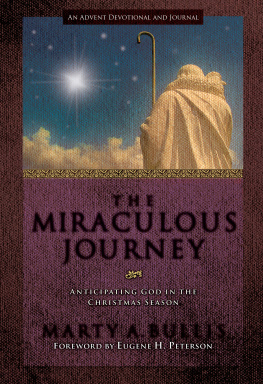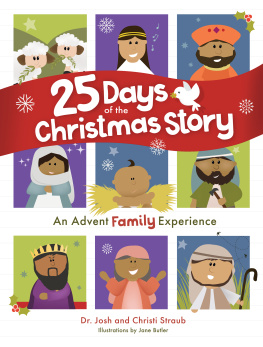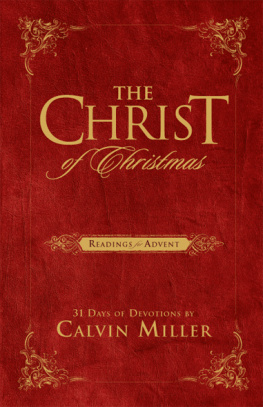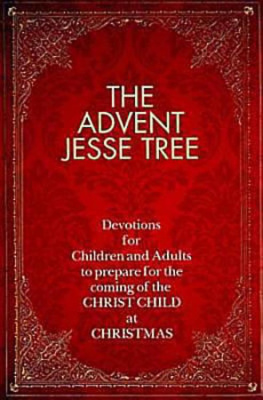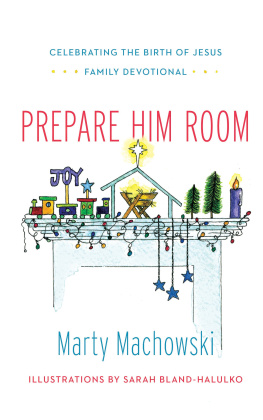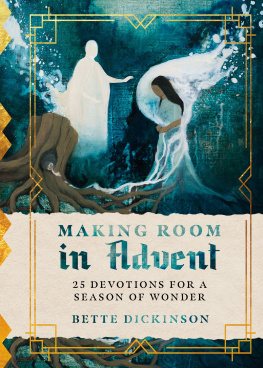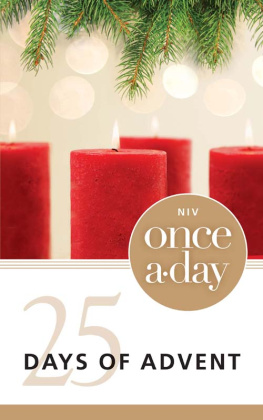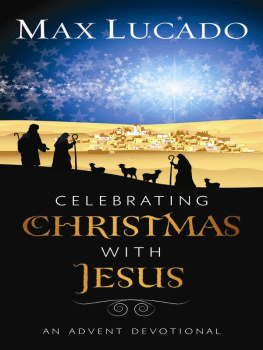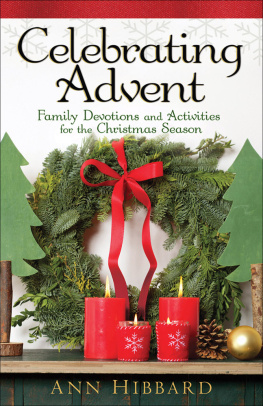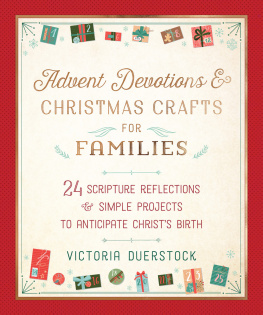
2004 Marty A. Bullis
Published by Revell
a division of Baker Publishing Group
P.O. Box 6287, Grand Rapids, MI 49516-6287
www.revellbooks.com
Revell edition published 2014
ISBN 978-1-4412-2468-2
Previously published by Regal Books
Ebook edition originally created 2013
All rights reserved. No part of this publication may be reproduced, stored in a retrieval system, or transmitted in any form or by any meansfor example, electronic, photocopy, recordingwithout the prior written permission of the publisher. The only exception is brief quotations in printed reviews.
Library of Congress Cataloging-in-Publication Data is on file at the Library of Congress, Washington, DC.
All Scripture quotations are taken from the following:
THE MESSAGEScripture taken from THE MESSAGE. Copyright by Eugene H. Peterson, 1993, 1994, 1995. Used by permission of NavPress Publishing Group.
NRSVThe Scripture quotations contained herein are from the New Revised Standard Version Bible, copyright 1989, by the Division of Christian Education of the National Council of the Churches of Christ in the U.S.A. Used by permission. All rights reserved.
RSVFrom the Revised Standard Version of the Bible, copyright 1946, 1952, and 1971 by the Division of Christian Education of the National Council of the Churches of Christ in the U.S.A. Used by permission.
CONTENTS
FOREWORD
God. Is there any word in our language that is more central, critical, demanding? It looms majestically on the horizon, so emphatically and indisputably there. The word sends out tentacles, probing, looking for a way into our imaginations. David, in his magnificent God-poem, Psalm 18, opens with a cascade of God metaphors, seven of them:
Strength
Rock
Fortress
Deliverer
Shield
Horn of Salvation
Stronghold
But not just there in the way a mountain is there, an objective piece of geography that can be analyzed, mapped, climbed and photographed. The first-person personal pronoun, my, is attached to each word. Everything we know of God is a matter of personal relationship. Nothing of God is simply a fact, a truth or an idea. And to make sure that we get it and never forget it, the verb that launches the sentence is I lovethe most personal verb that we have in our lexicon.
And yet. And yet. And yet. Is there any word in our language that is more relentlessly marginalized, dismissed, depersonalized and blasphemed? Whats going on here? How can a worda Person!so present to us, so centering to our lives, so dominant in every known language that men and women speak, be so easily and frequently reduced to a tired clich?
It turns out that as comprehensive and welcoming, as personal and available as God is, when it comes right down to it, we would rather be our own gods. The all-time favorite strategy for accomplishing this is to change all the God-words into me-words. It is much less intellectually strenuous and emotionally taxing than denying God outright. Its a simple matter of grammatical sleight of hand: Rearrange a few words, and there it is. The devil was right: Ye shall be as gods.
Those of us who take up membership in the Christian community have our work cut out for us. The Church has never spent a lot of its time trying to convince people that God exists. But it has had its hands full in convincing us that we are not gods. One of the Churchs strategies has been the observance of Advent.
Advent opens the Church year. Advent gets our attention. It interrupts a lot of our god-talk, most of which has nothing to do with God but everything to do with us, and immerses us in stories of God-in-actionGod comes, God comes to us: Our God comes, he does not keep silence (Ps. 50:3). Advent means comes toGod comes to us. God comes to us in the prophets; God comes to us in Jesus; God comes to us in acts of worship and giving and receiving in Jesus name. Get used to it!
Advent is not an argument that God exists. It is an immersion in song and story and celebration that God comesto us! It counters our pervasive assumptions that we are our own gods and supplants them with the glorious Advent of God in our history, in our lives. Listen to these stories; sing these songs; celebrate these comings and goings of God in this land. Did anyone tell a story of the god you like this? Did anyone ever compose and sing a song of the god you like this?
Welcome Marty Bullis as a companion for this Advent. Let him embrace you in prayer and meditation and reflection through these four Advent weeks. He is so good at this, purging our imaginations of our god-pretensions and clearing out time and space for celebration of God as He comes to us in Jesus.
Eugene H. Peterson
Professor Emeritus of Spiritual Theology
Regent College, Vancouver, B.C.
DEDICATION
For Ann and George Pace,
who love the miracle of Jesus
ACKNOWLEDGMENTS
In late fall 2003 I pulled together a community of friends with whom I wanted to remember and celebrate Jesus Advent. Our goals were to read afresh the Gospel stories of Jesus birth, to pray, and to journal daily. My task was to write devotions to accompany our observance. Weekly (sometimes daily) I would e-mail or print reflections for the group, and on Sunday those who lived nearby gathered to talk and pray. It was a wonderful Advent season, the fruit of which comes to you inside this book. That first group included Don and Jill Blake, Tracie Bullis, Jeff and Mary Beth Eyet, George and Ann Pace, and Karen Woodwithout their encouragement this book wouldnt have been written
In 2004 the text found its way to churches across the United States. The following people were instrumental in making this happen: Danny and Lisha White, Bill and Madeline Bullis, Tom Hay, Tom Oster, Lee Morrison, Pat Bruce, Bill and Carol Moore, Anne Ross, Deborah Dail, Merry Meloy, Skip Hastings, Laurel Dolan, Donna and Bill White, Dan and Lori Speak, Esther Smith, Kathryn Johnson, Steve Cort, Lois Jackson, Eugene and Jan Peterson, Roger Rath, Terry and Elena Stewart, Marguerite Shuster, and Mabel Finch.
I wish to thank the following congregations who generously supported this book in 2004: First Presbyterian ChurchPhilipsburg, PA; Denbigh Presbyterian ChurchChesapeake, VA; Elkton Presbyterian ChurchElkton, VA; First Baptist ChurchFountain Valley, CA; Christ Lutheran ChurchWhitefish, MT; Knox Presbyterian ChurchPasadena, CA; First Presbyterian Church and Trinity United MethodistPhilipsburg, PA; Kylertown Presbyterian ChurchKylertown, PA; First Presbyterian ChurchHarrisonburg, VA; Christ ChurchOak Brook, IL; Chapel by the LakeJuneau, AK; La Verne Heights Presbyterian ChurchLa Verne, CA; and, Christ Our King Presbyterian ChurchBel Air, MD.
Finally, my thanks to you, the reader, for celebrating Jesus Advent with saints all around the world.
INTRODUCTION
Christmas is coming a season of arrivals! Friends will come to our homes; grown children will return to their parents to celebrate and feast. Physical objects will get caught up with us in the movementtrees will be tied in place with fishing line, stockings will be hung and presents will start appearing. Anticipation keeps us on our toes as we get moving.
These events are good fuel for reflection, good opportunities to revisit the story of Christs Advent. Christ entered the world in motion: traveling to visit Elizabeth while in Marys womb, journeying to Bethlehem to be born, visiting Jerusalem with His parents weeks after His stable birth, and fleeing to Egypt to avoid King Herods wrath. His early days and months were as harried as any modern life could offer. Yet this child, this Word-made-flesh, brought stability into a tumultuous world. The Gospel accounts of His Advent give us a close-up look at Christ and can help us prepare again for His arrival in this Christmas season. As we immerse ourselves in these stories, we can ready our hearts to hear again the good news: Peace to all men and women on earth who please him (Luke 2:14,
Next page
